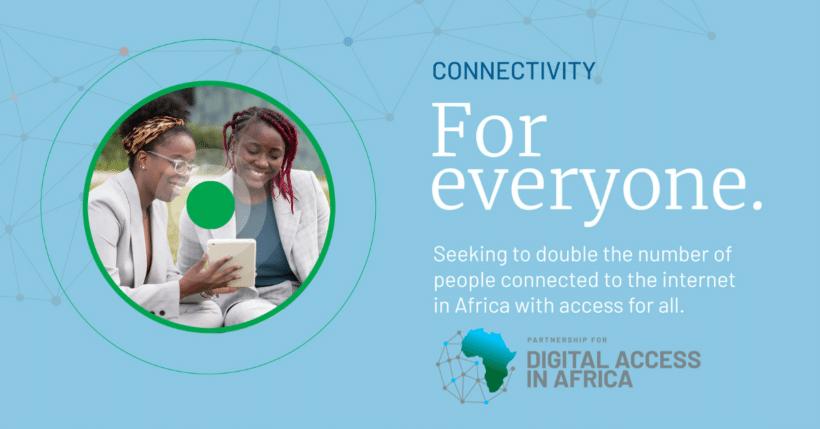
In an era when the internet is often described as a necessity for personal and professional growth as well as a catalyst to advance commerce, healthcare, education, and economic development, only approximately 40% of people in Africa are currently connected. This figure is in stark contrast to the global average of about 70%.
For women and girls in Africa, the situation is even more lopsided and challenging: only two women are connected to the internet for every three men. There has been no improvement in the ratio of women to men utilizing the internet across the African continent over a three-year period. In Africa, this digital divide has far-reaching implications, affecting access to vital government services, educational opportunities, healthcare, public information, and entrepreneurial prospects for hundreds of millions of people. The lack of affordable access to the internet effectively blocks the gateway to a brighter future for many Africans.
At the same time, many companies throughout the world understand the commercial potential of increasing access to more users and providing affordable connectivity services to the burgeoning market in Africa. With a projected population of almost 1.7 billion people and projected spending of almost seven trillion U.S. dollars by 2030, Africa’s growth trajectory is remarkably upward-looking.
Following President Joe Biden’s promise of a new Digital Transformation with Africa (DTA) and Vice President Kamala Harris’ Call to Action, a groundbreaking initiative, Partnership for Digital Access in Africa (PDAA) was launched this week. The partnership brings together private and public sector leaders from Africa, the United States, and other parts of the world. It is driven not only by economic opportunities but also by the moral imperative to bridge Africa’s digital divide. PDAA will serve as a champion and accelerator for DTA and will support and amplify the efforts of all entities playing key roles in bringing affordable and accessible internet to Africa.
This announcement comes as President Biden and First Lady Jill Biden host President William Ruto and First Lady Rachel Ruto of Kenya for a State Visit at the White House. The visit marks the 60th anniversary of the U.S.-Kenya diplomatic relations and reinforces the strategic partnership between the two nations. It also represents the first State visit by an African leader since 2008.
“President and First Lady Ruto’s visit marks a historic moment in our shared journey towards digital accessibility and affordability. Concurrently, the launch of PDAA is not only timely but crucial, to ensure that we harness the power of digital innovation for the betterment of all Africans – especially women and girls – across the continent,” said Former Liberian President and PDAA Co-Chair Ellen Johnson Sirleaf. “In this era of rapid technological advancement, this initiative stands as a beacon of our commitment to inclusive growth for our people. Its importance to achieving our overarching goal of gender parity, including in digital access, further motivates our involvement and participation in the PDAA.”
For its part, PDAA has set forth an ambitious goal to double the number of people connected to the internet in Africa, from the current 500 million to a targeted 1 billion people by 2030.
“Only 40 percent of Africans are currently connected to the internet versus 68 percent globally,” said PDAA Interim-CEO Ibrahima Guimba-Saïdou. “With respect to women and girls, the goal is to increase connectivity from 30 percent to 80 percent. I am confident that PDAA, in collaboration with our partners, will dynamically transform Africa’s digital footprint.”
Guimba-Saïdou will lead PDAA to achieve DTA’s objectives along three core pillars:
- Expand affordable internet and broadband services: To make the highest performance and lowest cost broadband available to as many Africans as possible;
- Lower device cost: To improve accessibility by making such accessibility to internet-enabled devices (smartphones) and digital technology more affordable throughout Africa; and
- Enhance digital skills: To assist in the upskilling of millions of Africans with the necessary capacity to more effectively and efficiently use digital technology.
The economic implications of this endeavor are significant. The results are likely to increase the potential to mobilize hundreds of billions of dollars into the annual GDPs of African nations. Along with its enormous potential, achieving this could place Africa at the forefront of global competition, commerce, and inclusive development.
PDAA has formed partnerships with public and private sector leaders, including the World Bank Group, M-KOPA, Smart Africa, African Leadership Group, Nokia, LifeHikes, and SpaceX. Each is committed to helping DTA realize its mission and objectives.
Across all of its initiatives and with all its partners, PDAA will focus on ensuring gender parity and equity in digital access and connection to the Internet. Increasing the number of women and girls connected and using the internet is crucial to providing them with opportunities for education, employment, entrepreneurship, and social and political participation, but it also can allow them to acquire new skills, address health disparities, and improve the overall quality of life – both for themselves and their families. To that end, PDAA’s collaborative efforts represent an unprecedented opportunity to work with Africa’s leaders to empower the people in Africa, reduce disparities, unlock the continent’s boundless potential, and help reach President Biden’s promise of a Digital Transformation with Africa. The rapid development of full digital capacity holds more than a promise for economic growth and job creation; its potential to improve gender equity, healthcare, increased trade among African countries and their global partners, food security, climate action, and cultural advancements is significant, both for the people in Africa and the world.
Africa’s time has come, and together, through collective action and collaboration, PDAA believes it is possible to break down barriers, bridge divides, and pave the way for a brighter and more prosperous future for Africa and the world.